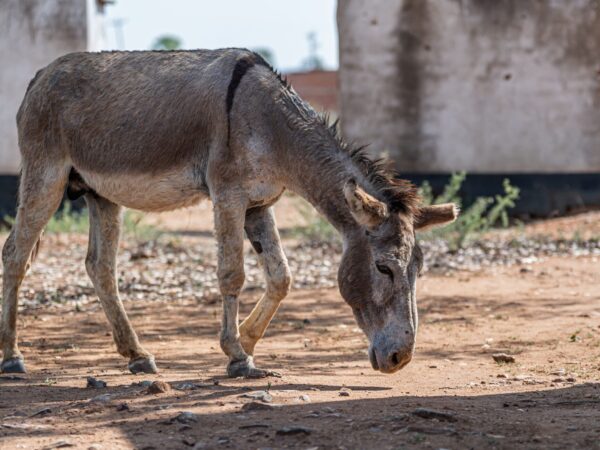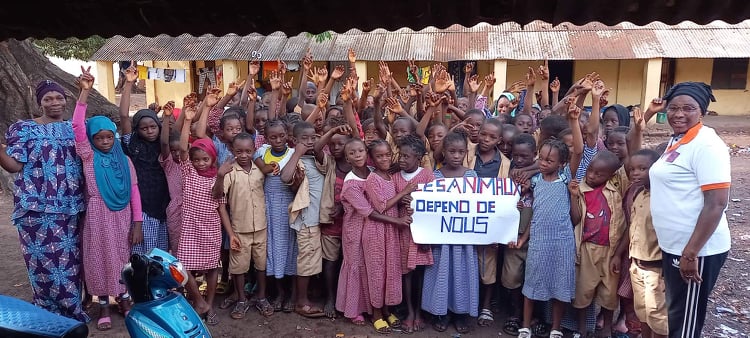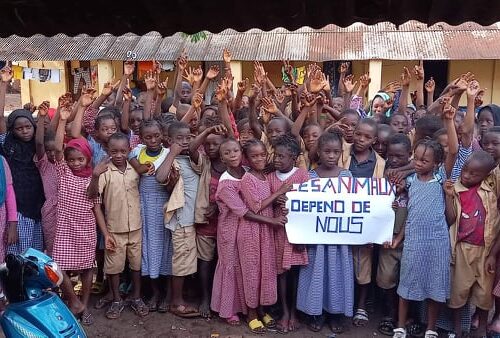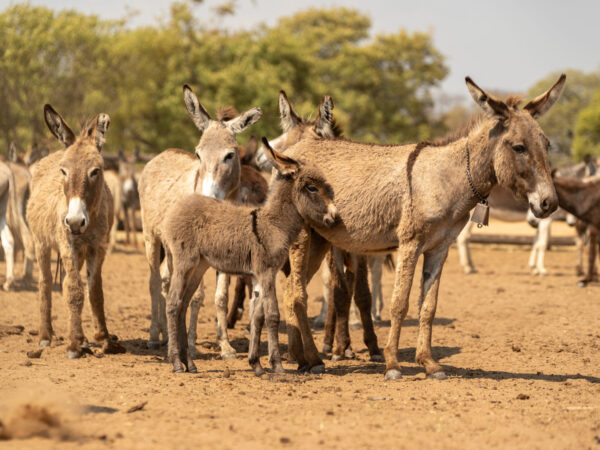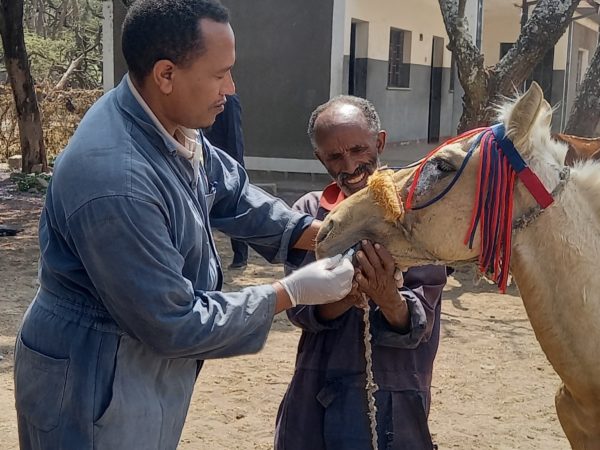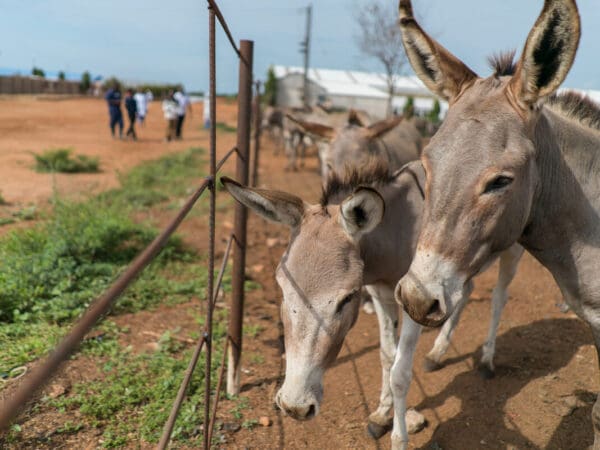With an estimated 8.8 million cattle, and about 75 per cent of the country’s population working in the agricultural sector, working animals are an integral part of daily life in Guinea. Cattle help rural communities earn a living through livestock farming, and donkeys are used to haul produce and goods to nearby towns. However, despite their importance, there is little awareness of animal welfare. That’s why SPANA is providing veterinary treatment to sick and injured animals in Guinea.
Guinea at a glance
- Population: 13.5 million
- Area: 245,857 square km
- Location: West Africa
- Capital city: Conakry
- Estimated number of working animals (including cattle): 8,832,753
- Number of mobile veterinary clinics: One
- Number of working animals treated in 2022: 7,155
- Number of animal owners trained in 2022: 5,336
- Number of veterinary professionals trained in 2022: 60
- Number of children receiving humane education in 2022: 5,403
Our work in Guinea
Based in Kérouané, south-east Guinea, where there is little or no access to veterinary care, our mobile clinic aims to provide vital treatment to 4,000 working animals a year. Treating primarily donkeys and cattle, the main conditions addressed by our vets are preventative deworming, work-related wounds, hoof trimming and digestive problems.
We also run community training sessions and community animal welfare groups in Guinea, reaching thousands of animal owners a year. Through these sessions, local communities can learn how to look after their working animals and receive practical training in skills such as basic farriery and harness repair.
In 2021, SPANA established an animal welfare education programme in Guinea for the first time. The programme teaches children about the basic needs of working animals, the important role these animals have in their communities, and why they should be looked after carefully.
Other countries we work in
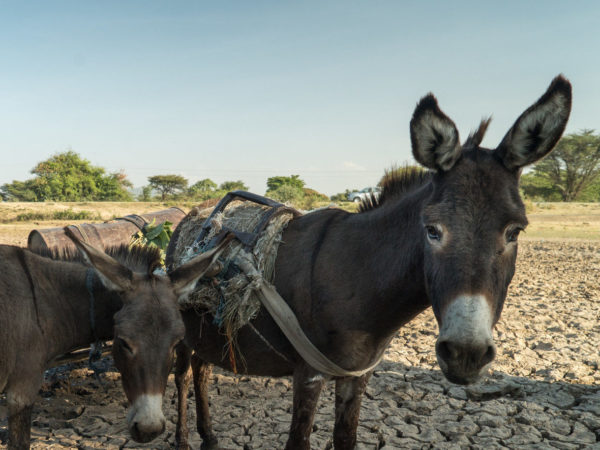
Emergency appeal: Save working animals from devastating drought in East Africa
Working animals in Kenya, Ethiopia and Somalia are dying from the effects of severe drought.
Read more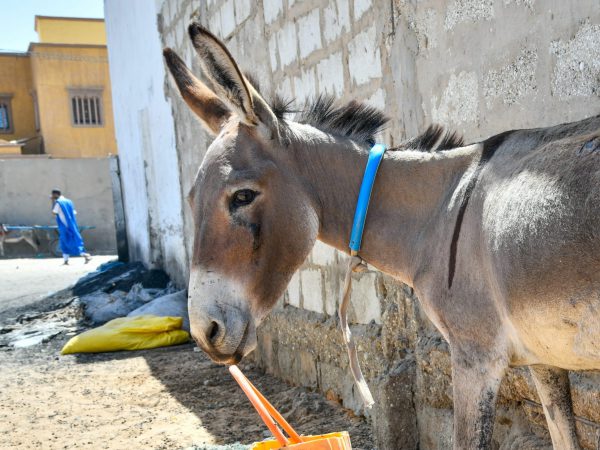
Keera the water donkey’s harness wounds
Read more